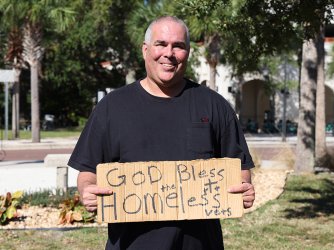Table of Contents
Buckeye State bill bans college professors from teaching with a ‘point of view,’ limits academic freedom rights

Shutterstock.com
Ohio state capitol building in Columbus.
In 2020, with FIRE’s support, Ohio passed robust protections for free speech at the state’s public colleges and universities when it enacted Senate Bill 40. That bill, signed by Gov. Mike DeWine, prohibited so-called “free speech zones,” defined student-on-student harassment consistent with Supreme Court case law, and banned viewpoint-based assessment of security fees on campus student groups. Ohio should be proud to have that law on the books.
This year, however, the Ohio legislature is considering a bill that threatens academic freedom. SB 83, the Ohio Higher Education Enhancement Act, is a 93-page bill that addresses a wide range of issues relating to the state’s public institutions of higher education, including endowment agreements, appointment terms for members of the boards of trustees at each respective public institution, workload policies for faculty, and collective bargaining — none of which FIRE takes a position on. Unfortunately, the bill also includes provisions that constitute curricular bans as well as language that would diminish academic freedom and First Amendment protections.
FIRE actively opposes any provision that would ban ideas from college classrooms. We have written to and met with Ohio legislators on multiple occasions to express our concerns.
SB 83, among other things, requires public institutions to maintain a policy that would “[a]ffirm and guarantee that faculty and staff shall allow and encourage students to reach their own conclusions about all controversial matters and shall not seek to inculcate any social, political, or religious point of view.”
FIRE’s chief concern with this bill is that it would infringe on the academic freedom of faculty in public college and university classrooms despite decades of Supreme Court precedent. In Sweezy v. New Hampshire, a landmark case protecting academic freedom, the Supreme Court wrote: “To impose any strait jacket upon the intellectual leaders in our colleges and universities would imperil the future of our Nation.” The Court went on to state that: “Teachers and students must always remain free to inquire, to study and to evaluate, to gain new maturity and understanding; otherwise, our civilization will stagnate and die.”
Indeed, it is nearly impossible for any professor, regardless of his or her political beliefs, to teach without a “point of view” on the subject matter of their expertise.
Ten years later, in Keyishian v. Board of Regents, the Court elaborated further on academic freedom, identifying it as “a special concern of the First Amendment, which does not tolerate laws that cast a pall of orthodoxy over the classroom.” The Court reasoned: “Our Nation is deeply committed to safeguarding academic freedom, which is of transcendent value to all of us and not just the teachers involved.”
Reaching one’s own conclusions about controversial matters is no doubt a critical skill that students should be encouraged to learn in higher education, but the bill’s requirement goes much further by stating that faculty and staff may not “seek to inculcate” particular points of view. Because the word “inculcate” is both vague and would restrict particular points of view, this provision is unconstitutional.
Generally, academic freedom protects a professor’s right to speak on matters of public concern in and out of the classroom. This includes the right to share personal opinions in the classroom if those opinions are at all germane to the topic of the course or if they are shared briefly to avoid consuming a substantial amount of class time. Indeed, it is nearly impossible for any professor, regardless of his or her political beliefs, to teach without a “point of view” on the subject matter of their expertise.
Thankfully, there is a simple fix. The word “inculcate” should be replaced with language that prohibits compelling students to express personal support for or opposition to any social, political, or religious point of view. This change would prohibit specific acts that infringe students’ First Amendment right to be free from compelled expression while preserving the academic freedom of faculty.

Legislative Policy Reform
Page
FIRE works closely with lawmakers across the country and political spectrum to protect civil liberties.
That’s not all. The bill also requires the board of trustees of state institutions of higher education to adopt a policy with certain requirements for each institution including prohibiting “any mandatory programs or training courses regarding diversity, equity, and inclusion” unless the institution seeks an exemption. Since academic courses are often described as “programs,” this provision needs to be amended or cut to ensure that the state is not intruding into college classrooms. Without amendment, this provision could also amount to a curricular ban, meaning it would prohibit certain topics or ideas from being taught in college classrooms.
A simple fix would be to amend this provision so it only applies to mandatory non-credit-earning programs or non-credit-earning training courses created by administrators or staff. FIRE does not oppose provisions that would require, regulate, or prohibit mandatory non-credit-earning programs or training at public institutions of higher education. Restrictions on the content and views expressed during non-credit-earning training do not infringe on the First Amendment or principles of academic freedom because the content of such training constitutes the government’s own speech. And governments are permitted to regulate their own speech.
Of all the states that have considered similar language over the past few years, only one state — Florida — has enacted a bill with a higher education curricular ban. FIRE is currently litigating against those provisions of Florida’s “Stop WOKE Act,” and we’ve secured victories against that law in federal district court and federal circuit court.
While amending SB 83 to remove curricular bans would go a long way, the bill contains a host of other provisions that FIRE finds problematic. For example, SB 83 states:
The chancellor of higher education shall develop a minimum set of standard questions for use by state institutions of higher education in student evaluations of faculty members. The questions shall include the following:
“Does the faculty member create a classroom atmosphere free of political, racial, gender, and religious bias?”
Students should play a role in evaluating faculty performance, but the required question would allow students to evaluate faculty members based on faculty members’ perspectives expressed in the course materials and in the classroom. Minority perspectives, including conservative perspectives, in academia could be particularly targeted through this question, especially given that another provision in SB 83 would require that student evaluations account for at least 50% of the “teaching area component of the evaluation.”
We are hopeful that the Ohio legislature will amend SB 83 and continue its positive trend toward protecting the First Amendment rights of everyone on public college and university campuses.
The Ohio legislature has shown some reluctance in passing these worrisome provisions. While the Senate voted to include much of SB 83’s language into the Ohio budget bill, HB 33, the language was subsequently removed before it was sent to the governor. That said, SB 83 remains a threat, as it already cleared the state Senate and the House has held hearings on it and its House companion bill, HB 151.
With that said, some of the provisions in SB 83 would strengthen First Amendment protections on Ohio campuses. The bill, for example, requires public institutions to include the following language in their mission statements: “The institution declares that it will educate students by means of free, open, and rigorous intellectual inquiry to seek the truth.”
But as long as unconstitutional provisions remain in the bill, FIRE remains opposed to SB 83. We are hopeful that the Ohio legislature will amend SB 83 and continue its positive trend toward protecting the First Amendment rights of everyone on public college and university campuses.
Recent Articles
FIRE’s award-winning Newsdesk covers the free speech news you need to stay informed.


FIRE Statement: X Corp's lawsuit and Texas's investigation into Media Matters for America are deeply misguided

Anonymous speech is as American as apple pie


